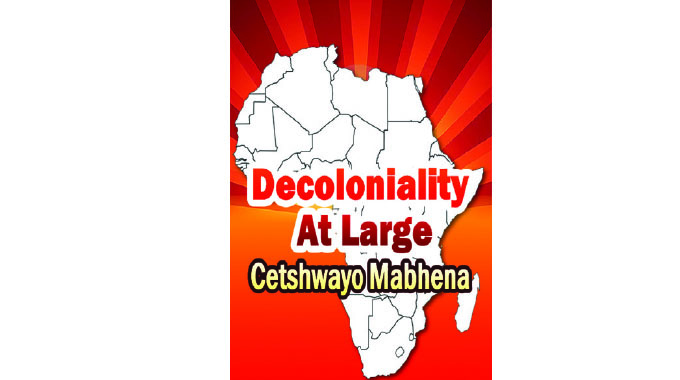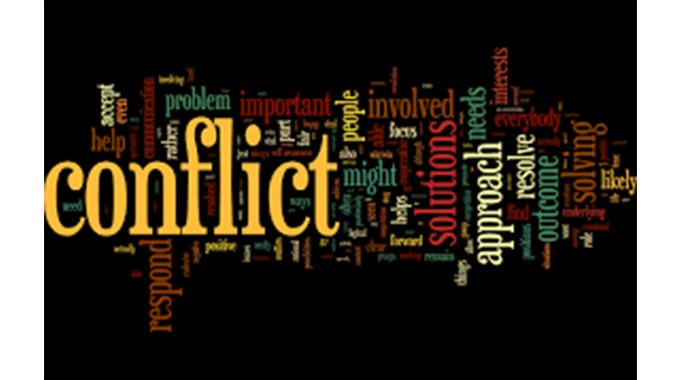
The Sunday News

WE cannot understand the limits of the post-political without understanding the political in the first place. Such contemporary political philosophers as Chantal Mouffe have spilt much ink trying to explain the political which is different from politics. Politics can simply be defined as public affairs where power, authority, and resources are competed for, shared and distributed. As such, politics is naturally a contested, conflictual and antagonistic terrain because power, resources and life opportunities are at stake.
The political, as an intervention in politics comes in to civilise and democratise politics which if left unmodernised may easily collapse into the war of one against all. As Mouffe has illustrated, the political aims to turn political enemies into political adversaries that may compete for power and resources but do not have to eliminate each other. In the political, antagonism is turned into agonism, and political enemies become legitimate opponents that are rivals, adversaries, but not blood enemies.

In other words, politics will always need the political to tame its barbarism and introduce ethics and law into political affairs. In that way, politics wherever it is found must be treated to the political otherwise hate and violence may break out. Politics, without the political, becomes the proverbial dirty game. Not only does it become a dirty game, but it escalates into a dangerous game that produces dead bodies in large numbers. While in politics proper enemies negotiate after war, in the political adversaries negotiate before the war, and avoid the war. What is described as post-politics is the actual danger of running politics without the political. Today I write about that there is a crisis of the political in South Africa that is leading to dangerous post-politics.
The birth of a troubled polity
As a polity and an economy, post-apartheid South Africa had a troubled birth. What was called the miracle of 1994 was a kind of troubled birth of a state and a nation. The miracle involved reconciling white guilt and fear with black anger and high expectations. Whites were guilty of apartheid and afraid of black revenge. Post-apartheid South Africa as a 29-year-old country carries a birthmark of its tragic birth and that birthmark manifests as a symptom in the South African streets, in crime, xenophobic violence, racists incidents, violent public service protests, the killing of women and children, and the South African parliamentary proceedings. The combination of these symptoms has made South Africa a spiritually troubled, haunted, and angry country, I believe.
The end of exceptionalism
What is called South African exceptionalism is an apartheid political design. Under apartheid South Africa was politically engineered to be a white country in Africa. The country was supposed to be a piece of Europe in Africa where black people, especially black Africans from other countries in Africa were welcome only as labourers and other servants. The white South African community and some elite black South Africans and other privileged Africans wake up daily to keep South Africa exceptional and different from other African countries. South Africa as exceptional and different from other African countries is a fantasy that haunts whites and some black elites in the Republic. Poverty, crime, violence, gender-based violence and femicide, xenophobia, drug abuse and rampant mental illnesses are symptoms of a political malady that is eating away at the polity and the economy of the Republic that is in many ways another African country in Africa and the Global South. South African exceptionalism as a political ideology of a kind has led to the thriving of post-politics.
The fragile absolute
South Africa has been, from its design by colonialists, a powerful country. Rich in human and other natural resources, the conquerors found a jewel in the land in the South of Africa that they wanted to keep apart from the rest of Africa. Apartheid was an attempt to keep South Africa apart from Africa and away from black people. As such South Africa was developed into a replica of a European country in the African continent. Weapons of war, including nuclear warheads were amassed. The nuclear warheads were only taken to the USA when a black government was about to take over power in 1994.
Infrastructurally the country was built to project the image of an empire with majestic tall buildings and an elegant road network that some European governments can only envy. But behind the power, economic prosperity and military might of the country, there has always been some political fragility about South Africa. It is a country that can explode into some other large-scale violence anytime when triggered. It is for that reason that one may have the sense that in South Africa there are always ready mobs of angry people that are waiting to be triggered into burning trains and buses, torching buildings, and lynching any vulnerable people such as poor foreign nationals and women. This is a political weakness that is reflected in the national short temper of South Africans. Politically and socially South Africans are impatient, angry and unhappy. This unhappiness is most times demonstrated, ironically, in wild displays of happiness. The party culture that has seen South Africans drink and dance before, during and after funerals might be a sign of unhappiness, socially and politically.
The curious fact that, besides Nelson Mandela, there is no South African President that has finished his term of office might be a telling sign of a politically impatient polity. There is a joke in the South African social media landscape that “South Africans are not loyal,” today they are prepared to kill for you, tomorrow they are prepared to kill you. Another one simply says, “there is no chill in Mzansi,” the Republic is no longer at ease. My diagnosis is that political fragility and unease is the root cause of most of the social problems that manifest as symptoms and omens in the Republic. The country has deep psycho-socio-political issues that have not been resolved.
The limits of the political
Public discontent and agitation by electrical loadshedding and poor public service delivery are alarming. Crime levels, assassinations of celebrity musicians and businesspeople are escalating. Taxi wars have not stopped producing many dead bodies. Only in South Africa do you have a vice-chancellor of a university driving around with bodyguards. Everyone is afraid. The debates in the National Assembly have never been more riotous and violent. Also on the increase in South Africa are bizarre cases of loyal pet dogs turning around to kill their owners. One can surmise that South Africa needs to talk to itself. The stiff political competition for money in the business landscape, power in the political landscape and resources in the economy must be surrendered not to politics but the political.
Cetshwayo Mabhena writes from the University of the Witwatersrand, Johannesburg, South Africa. Contacts: [email protected]



